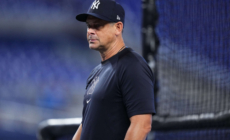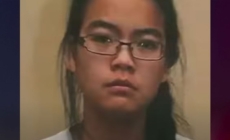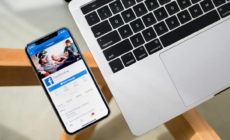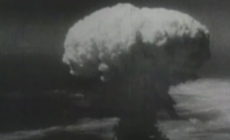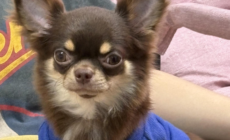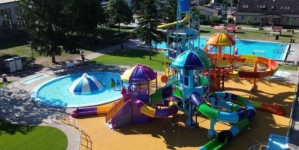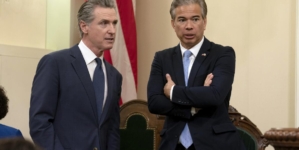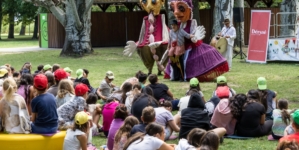-
Son of Legendary Yankees Outfielder Wants Aaron Boone Fired - 29 mins ago
-
What Would Trading for Cowboys Star Micah Parsons Cost and Who Might Pay It? - 37 mins ago
-
Jennifer Pan’s revenge leaves parents brutally murdered - 49 mins ago
-
How to quickly recover a disabled Facebook account - 55 mins ago
-
Birds and Bats Reduce Vineyard Crop Loss, Study Finds - about 1 hour ago
-
Key Dallas Cowboys Duo Among Top Training Camp Standouts - about 1 hour ago
-
Hiroshima and Nagasaki devastated by atomic bombs in 1945 - about 1 hour ago
-
RFK Racing Teammates Battling Themselves, Others On Playoff Bubble - about 1 hour ago
-
One of Our Popular Thermal Spas is Getting a Complete Overhaul - 2 hours ago
-
Worried Owner Takes Dog To Vet As She Stops Eating—Unprepared for Diagnosis - 2 hours ago
UCLA will negotiate with Trump over $339 million medical and science grant freezes
Since federal agencies surprised UCLA by freezing roughly $339 million in research grants, faculty, graduate workers and students have sought out details on what the university — the first public higher education institution targeted by President Trump — will do.
Will UCLA challenge the federal government in court, negotiate and potentially pay a large fine or tap into emergency reserves to support researchers? With more than a third of its federal grant and contract funds frozen, will UCLA be forced to lay off employees, as Columbia, Harvard and other elite private universities did?
As Trump battles to remake colleges, the administration has accused UCLA of illegally allowing antisemitism, using race in admissions and letting transgender players compete on sports teams that match their gender identity. Ivy League schools have similarly been faulted by the administration over their responses to pro-Palestinian encampments last year.
Senior administrators outlined answers during a virtual town hall attended by about 3,000 faculty Monday and also at department-level meetings, including at the UCLA Medical School, which has lost hundreds of grants from the National Institutes of Health.
But they cautioned that there were no final decisions.
“There is a time period to resolve the questions the government has for us,” Marcia L. Smith, associate vice chancellor for UCLA research administration, said during the virtual town hall. Smith said the leaders were “preparing” to contact the NIH, National Science Foundation and the Department of Energy — which froze roughly 800 grants over several days last week — “to talk about what kinds of information they need to lift these suspensions.”
Smith said she was “very hopeful” that UCLA will “find a solution.”
Negotiation terms unclear
There was no mention of the University of California potentially making a payout like Columbia, which agreed last month to a more than $200 million fine as part of a sweeping agreement with Trump to restore suspended grants. UC as a system oversees federal relations for UCLA and nine other campuses.
Speaking on background to The Times on Monday, three senior UC leaders echoed a similar message: UCLA will likely enter into negotiations, but it is too early to determine the terms. The officials were not authorized to speak publicly about internal deliberations.
Negotiations would also not preclude a potential lawsuit, they said.
“Every single public institution in the nation is watching us very carefully,” UCLA vice chancellor for research Roger Wakimoto said during Monday’s town hall. He later added: “We’re out of the gate setting the pace.”
“This is not just a UCLA decision, certainly our chancellor is going to be intimately involved in whatever path forward we decide, but it is also going to involve the regents of the University of California” Wakimoto said, as well as the new UC President James B. Milliken, who began the job Friday.
Wakimoto and UCLA leaders also said other UC campuses were offering to help, including by taking care of lab animals that may need aid.
DOJ says UCLA will pay ‘heavy price’
The grant suspensions last week, affecting research into neuroscience, clean energy, cancer and other fields, came after the Justice Department and U.S. Atty. Gen. Pam Bondi said UCLA would pay a “heavy price” for acting with “deliberate indifference” to the civil rights of Jewish and Israeli students who complained of antisemitic incidents since Oct. 7, 2023. That’s when Hamas attacked Israel, which led to Israel’s war in Gaza and the pro-Palestinian student encampment on Royce Quad.
The DOJ gave UCLA until Tuesdayto indicate it would negotiate over those findings. Otherwise, a letter to UC said the Trump administration would sue by Sept. 2. That letter was sent just a day before the federal agencies began notifying UCLA Chancellor Julio Frenk that vast portions of the university’s research enterprise must come to a halt.
In statements since last week, Frenk has challenged the idea that UCLA’s alleged antisemitism is justification for pulling grants.
“A sweeping penalty on life-saving research doesn’t address any alleged discrimination… We have contingency plans in place and we are doing everything we can,” Frenk said without elaborating on the plan.
In a video posted to social media Monday, Milliken did not directly address suspensions but broadly mentioned the “challenges” facing universities.
“Higher education is facing greater challenges and change than at any point in my career,” Milliken said. “At the same time, I know that our work is essential to improving lives, strengthening the economy and providing lifesaving health care, more so than ever. The future of our state and our country and our world depend on thriving, innovative and accessible universities.”
Faculty demand aggressive defense
Hundreds of faculty have their own ideas.
In a petition circulating across UCLA and UC campuses, professors are asking UC to challenge the government more head-on. A growing number have signed.
“We do not have to bend to the Trump administration’s illegitimate and bad-faith demands… We demand in the strongest possible terms that the University of California demonstrate our strength as the world’s largest university system and reject the malicious demands of the Trump administration,” said the petition from the UCLA Faculty Assn. As of Monday afternoon, the petition had garnered more than 600 signatures, mostly from UCLA professors.
“We demand that the UC name these demands as what they are: efforts to erode the strength of American higher education. Each university that falters legitimates the Trump administration’s attacks on all of our institutions of higher education and we must stand up now. To protect our democracy we must protect our universities. Only when academic workers and the community as a whole collectively organize can we fight back against the threat to our campuses and our democracy,” the petition said.
It also made another suggestion: that UC tap into billions in unrestricted endowment funds to bridge the gap left by suspended grants. University leaders have not publicly indicated whether that is on the table.
Carrie Bearden, a professor at UCLA’s Semel Institute for Neuroscience and Human Behavior and Brain Research Institute, is among those who signed. She is the director of a now-suspended five-year, $2.36-million NIH training grant that funds students doing neurogenetics research.
“That is an immediate, terrible impact on all the trainees. We do not know what other funding will cover them right now,” said Bearden, who said she was told by faculty leaders to potentially expect further grant cancellations, which is the way freezes took place at East Coast universities in recent months.
Vivek Shetty, a UCLA professor of oral and maxillofacial surgery and biomedical engineering, also had an $828,154 four-year NIH grant frozen. His, which had been renewed over 11 years, focused on training digital health researchers, such as those who develop apps and wearables to flag irregular heartbeat, steer daily diabetes control and deliver medical care remotely.
“The funding freeze endangers the very care that will protect us and our families tomorrow,” said Shetty, a former UCLA Academic Senate chair. “Starve these brilliant minds today, and we extinguish an entire generation of life-saving ideas. However fierce its public objections, the University of California will likely acquiesce to Washington’s terms, painfully aware of the deep human and scientific costs of this harsh decree.”
Source link
